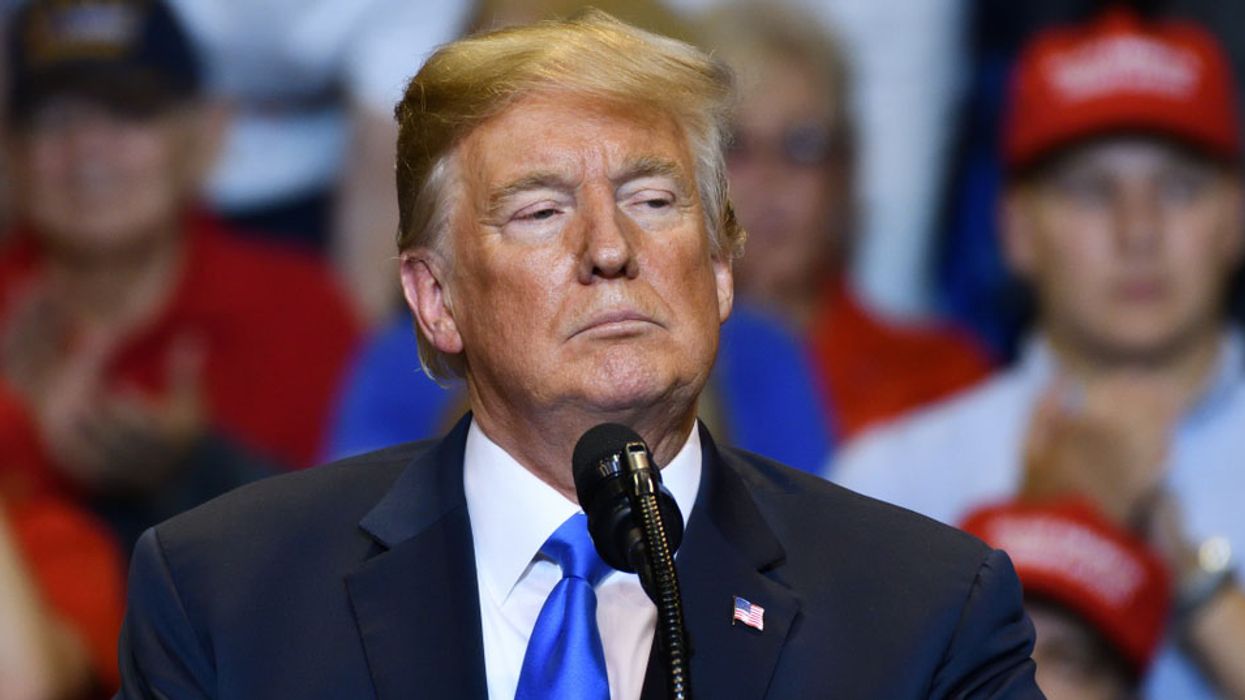'Not a serious argument': Legal experts tear apart Trump’s newest SCOTUS filing


Attorneys for former President Donald Trump have filed their response to Department of Justice (DOJ) special counsel Jack Smith's petition to the Supreme Court of the United States (SCOTUS) urging justices to act quickly to decide on the question of absolute presidential immunity. Various legal experts are weighing in on the ex-president's attempts to slow down the legal process.
According to CNN, Trump submitting this latest filing will now trigger the process for SCOTUS to hear the case, following its announcement that it accepted Smith's request to answer the immunity question, as opposed to the US Court of Appeals. Trump's briefing asked SCOTUS to not expedite its decision, in line with his legal strategy of delaying and postponing legal proceedings until after the 2024 election.
"The Special Counsel urges this Court to bypass those ordinary procedures, including the longstanding preference for prior consideration by at least one court of appeals, and rush to decide the issues with reckless abandon," Trump's lawyers wrote. "The Court should decline that invitation at this time, for several reasons."
POLL: Should Trump be allowed to hold office again?
"This is not a serious argument. The Court can hear appeals from winners if there's a sufficiently strong policy reason," tweeted University of Texas law professor Lee Kovarsky. "The standing argument is a touch more complicated, but it's not essentializing too much to say that it's bull---."
"COMPARE: Trump’s filing in Supreme Court today (seeking to slow down the DC criminal case) TO his upcoming filing appealing the Colorado decision, where he will seek alacrity," New York University law professor Andrew Weissman wrote, referring to Trump's Colorado court filing seeking an expedient decision on his ballot eligibility.
"It would be easier for former President Trump to argue against cert. before judgment here if his Justice Department hadn't asked SCOTUS to likewise leapfrog courts of appeals on 10 different occasions (in five of which the justices acquiesced)," Steve Vladeck, who is also a University of Texas law professor, added.
The former president has previously argued in court that as a former commander-in-chief, he should be immune from any criminal or civil accountability in perpetuity. Of course, Trump has also said on the campaign stump that if elected to a second term, he would weaponize the DOJ to prosecute his political opponents, including President Joe Biden and his family. This would mean that Trump's interpretation of presidential immunity would include only him.
READ MORE: Jack Smith just tore apart Trump's 'startling' absolute immunity argument
In her decision rejecting Trump's immunity argument, US District Judge Tanya Chutkan — who is overseeing the DC trial pertaining to Jack Smith's January 6 indictment — said that Trump did not have the "divine right of kings" as an ex-president. However, following SCOTUS' granting of a writ of certiorari to Smith, Chutkan paused all proceedings in that case until SCOTUS issued its ruling on the immunity question.
This marks yet another case SCOTUS will hear ahead of the 2024 presidential election. On Tuesday, the Colorado Supreme Court issued a 4-3 decision determining that the insurrection clause in the 14th Amendment to the US Constitution made Trump ineligible to appear on the 2024 Republican primary ballot. Colorado's high court put an automatic stay on its decision until January 4 — meaning it wouldn't take effect until next month — in anticipation of SCOTUS weighing in.
READ MORE: Chutkan slams Trump in latest ruling rejecting immunity argument: No 'divine right of kings'